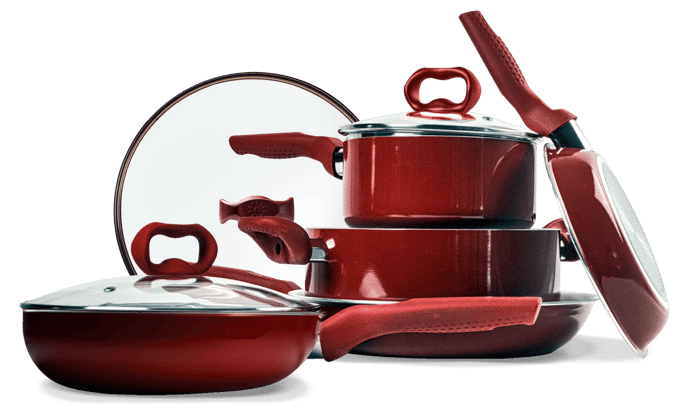Sometimes it is not enough to eat healthy, you have to cook healthy too. Have you ever considered the impact of cookware on your welfare? In this blog, we will discuss the importance of healthy cookware, different options, and tips for safe and healthy cooking.
1. Importance of Healthy Cookware: Some cookware materials can impact your health, which is why it is important to use the right products. Common harmful substances are perfluorooctanoic acid (PFOA), poly
2. Different Healthy Cookware Options: When it comes to healthy cookware, there is a plethora of options available. For instance, Ecolution's Symphony Premium Forged Non-Stick Cookware Set is an excellent choice as it is made without PFOA, lead, and cadmium. Additionally, there are other materials to consider, such as cookware with hydro-ceramic coatings, which are water-based. This makes them a preferable option for those concerned about chemicals. Stainless steel and cast iron are also popular alternatives. When it comes to storing food, glass is a better alternative to plastics as it is more sustainable and does not contain BPA.

3. Tips for Safe and Healthy Cooking:
Proper Usage and Care: There are guidelines on how to handle different types of cookware. Some cookware may have a rubber handle to prevent burns. In addition to a padded handle, it is recommended to wear a potholder or oven mitt when using cookware for an extended period of time. Be aware, it also important to start with a clean pan for optimal food release. To cook properly, take your food out ten minutes before preheating your pan. When using non-stick cookware, it is best to avoid using oil or butter, but it is safe to use them as long as low heat is maintained.
Utensils: For non-stick cookware, it is recommended to use nylon or wooden utensils as they are heat-resistant and less likely to scratch the surface. It is important to note that cutting in a pot or pan with a metal utensil should be avoided. Bamboo utensils are also a great option as they are more ecological and gentle on cookware. However, it is important to keep in mind that bamboo utensils may not be as heat-resistant as other materials, so they should not be left in hot pots or pans for extended periods of time. Another excellent material to consider is silicone, which also possesses non-scratch properties and great flexibility. Silicone spatulas, whisks, brushes, and tongs are commonly used and can withstand high temperatures without melting or warping.
Buying healthy cookware goes beyond just acquiring kitchen tools. It is an investment in your own well-being and the well-being of those you cook for. By taking the time to understand the impact of different cookware materials and exploring the available options, you empower yourself to make informed decisions that align with your health goals. This knowledge allows you to transform your cooking experience into one that not only prioritizes health but also enhances the taste and quality of your meals.

